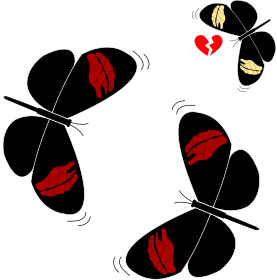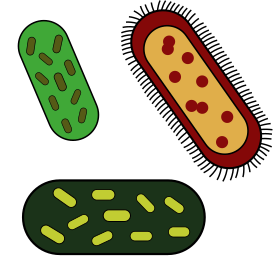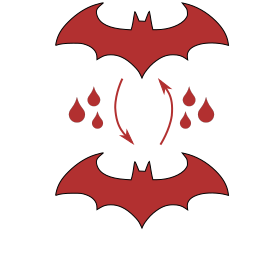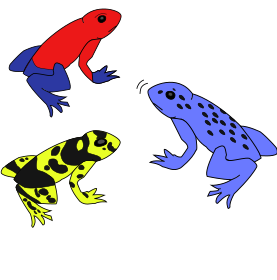Thomas Aubier
 Sexual interactions play an important role in the evolution of reproductive isolation, with important consequences for speciation. Of particular interest are the processes at the origin of assortative mating — the tendency of individuals of similar phenotype to mate together more often than expected by chance —, which plays a key role in generating premating reproductive isolation. I build mathematical models, mostly population genetic models, to dissect how natural and sexual selection determine the evolution of mate preferences.
Sexual interactions play an important role in the evolution of reproductive isolation, with important consequences for speciation. Of particular interest are the processes at the origin of assortative mating — the tendency of individuals of similar phenotype to mate together more often than expected by chance —, which plays a key role in generating premating reproductive isolation. I build mathematical models, mostly population genetic models, to dissect how natural and sexual selection determine the evolution of mate preferences.
I have already investigated the implications of preference coevolution and of costly mate preferences for reproductive isolation. Now, I am assessing whether subtle differences in the genetics of speciation (e.g., pleiotropy vs. tight linkage among loci) matter when it comes to the build-up of reproductive isolation.
 The 'Red Queen hypothesis' for the evolution of sex emphasizes the potential of host-parasite interactions to cause fluctuating selection, thus favouring sexual reproduction. Any form of genetic mixing is favoured because it can produce offspring with genetic associations that are currently rare and therefore less susceptible to parasites
The 'Red Queen hypothesis' for the evolution of sex emphasizes the potential of host-parasite interactions to cause fluctuating selection, thus favouring sexual reproduction. Any form of genetic mixing is favoured because it can produce offspring with genetic associations that are currently rare and therefore less susceptible to parasites
I have investigated the implications of another kind of antagonistic interactions — the interactions between multicellular organisms and transmissible cancers — for the evolution of sex. In a more standard host-parasite system, I am now taking the perspective of the parasite, and I am dissecting how genetic mixing in host and in parasite can coevolve. I also have a particular interest for exposure biases like vertical transmission of parasite from parents to offspring. These create 'similarity selection' that has the potential to favour genetic mixing, while being distinct from a standard Red Queen process.
 The evolution of cooperation is a central theme in biology. Cooperative traits pose an evolutionary puzzle: how do cooperative traits emerge and persist when non-cooperative traits can better exploit the public good of cooperation? Evolutionary theory has largely solved this puzzle. In particular, reciprocity theory explains how cooperation between two individuals can be enforced by reward and punishment.
The evolution of cooperation is a central theme in biology. Cooperative traits pose an evolutionary puzzle: how do cooperative traits emerge and persist when non-cooperative traits can better exploit the public good of cooperation? Evolutionary theory has largely solved this puzzle. In particular, reciprocity theory explains how cooperation between two individuals can be enforced by reward and punishment.
I aim at investigating theoretically how cooperation based on reciprocity can evolve in an explicit individualized society. Theoretical approaches rarely goes beyond simple pairwise interactions, whereas empiricists can now assess the complex structure of social networks. Therefore, there is a clear need of theoretical predictions at this society scale.
 The convergent evolution of warning signals among defended species, known as Müllerian mimicry, provides one of the most celebrated examples of the power of natural selection. In short, Müllerian mimicry between defended species arises as a consequence of selection favouring a common phenotype, thereby reducing the cost of educating predators. However, we still do not fully understand how the diversity of warning colours observed in nature is generated and maintained.
The convergent evolution of warning signals among defended species, known as Müllerian mimicry, provides one of the most celebrated examples of the power of natural selection. In short, Müllerian mimicry between defended species arises as a consequence of selection favouring a common phenotype, thereby reducing the cost of educating predators. However, we still do not fully understand how the diversity of warning colours observed in nature is generated and maintained.
Aposematism and mimicry are ripe with interesting theoretical questions. In particular, I am studying the process by which the predators learn to avoid the warning signal of defended prey, and I investigate how it affects the evolutionary dynamics of mimicry.